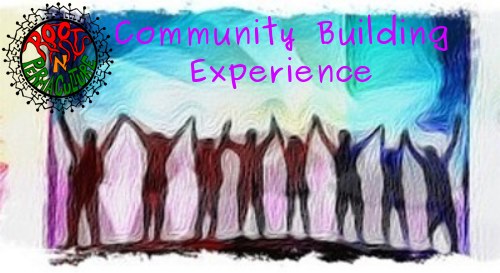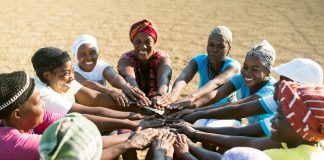World Calendar
Send us your event so we can publish it in this world calendar.
Envie-nos o seu evento para publicarmos nesse calendário global.
Envíenos su evento para publicar en ese calendario global.

- This event has passed.
France – Ariège- Community Building Experience (inc sociocracy in practice)
Friday, October 18, 2019 @ 09:00 - Sunday, October 27, 2019 @ 17:00

Transformative 10 to 13-day experience on how to communicate, work and live in harmony with others.
Are you thinking of creating an eco-village or an intentional community? Are you already working in a community or collaborative project? or maybe you are looking to create a community project but are not sure:
– How to begin
– How to find the right people
– How to keep people together in harmony
– How to have fun in the process!
Amazing projects failing to go the distance is a well-recognized pattern, and as you may have already experienced, it is usually due to lack of cohesion between people and a clear shared vision.
But there are also well-recognized patterns, and plenty of community tools which do allow projects to last… and we are excited to share these with you all. The core part of the experience is about sharing tools that help us to communicate, problem-solve and bond. We will learn various tools, experience the tools, build our temporary community, and make sure everyone who wants to facilitate using these tools gets the opportunity to do so.
If you are looking to work better within your community, whatever that may be, this course is not to be missed.
To secure your place email rakeshaji@gmail.com
=== DATES ===
18th October 2019: Arrive by 6 pm for our first meal
19th to 26th 8 full days community building experience
19th and 20th October: Two-day introduction to collaborative decision making (sociocracy)
27th October 2019: Closing circle and departures
28th to 30th October: Optional extra open space sessions (explained below)
NB: If you can arrive early on 18th and are prepared to do some hard work to set up the place, please let us know. We will most likely need some help to make a kitchen and prepare an outdoor teaching space.
=== WHAT TO EXPECT ===
This will be a unique experience. For the duration of this experience, we will look at what causes projects to fail, so we can learn to spot potential pitfalls, we will then not only learn, but actively put into practice the patterns and tools that allow projects and communities to succeed.
You will walk away knowing that it is possible to live and work in harmony with other people. You will have knowledge of a rich set of tools and have experienced using them in a collective setting, as we form a community that works out how to live together in harmony.
Collaborative decision making forms the basis of how we will work together hence the first 2 days of this experience will be focused on learning and using an invaluable community decision-making tool called sociocracy (also known as Dynamic governance). Sociocracy has 95 years of experience in allowing individuals needs to be heard and used to form a cohesive project with actions that every person consents to.
For people who cannot make the whole experience, you can attend the first 2 days on sociocracy as a stand-alone course (more information on sociocracy is provided at the end). We will also have a few other days which will be open to the public especially during the weekends.
For the remaining days, we will use sociocracy to make decisions including how we structuring our time together to meet everyone’s needs and encourage everyone to share their gifts for the benefit of all.
Suggested structure of our days (open to discussion and re-design): Before lunch, we will present various tools related to community building combined with activities. After lunch, we will have a mix of whatever subjects you want, which could include, design work, hands-on activities, or other community-building tools.
The venue wants to be converted to a forest school and a small community where people can live all year in abundance, using permaculture and forest gardening design. So if we all agree we can collectively design and implement parts of this exciting transition.
The following are some examples of the community tools we can explore together over the 8 remaining days after the sociocracy course.
• Thriving in a community (how to identify successful patterns for communal living and working, and associated tools)
• Dragon dreaming (how to create outrageously successful community projects)
• Six thinking hats (good communication skills)
• Forming storming, norming, performing (patterns of healthy human relationships)
• Spirals of abundance (how to create abundance in relationships)
• The work that reconnects (replacing activist burnout with creative solutions to achieve your activist goals)
• Prama (how to create physical, mental and spiritual balance individually and in a community)
. Forum (a tool for communities to deeply share and better understand each other)
. Hero’s journey (Using patterns which are common to all hero stories so we can understand our personal hero’s journey)
As we find out our needs, more exciting and useful community-building tools will emerge, so the above list is by no means complete.
We would also like to propose that we collaboratively design and implement a permaculture design of the venue, so we leave a legacy behind. We can also implement some small physical structures such as an outdoor kitchen, a Biochar burner, a compost toilet, raised beds or anything that we dream of and consent to build (we could build more than one thing if that is what we consent to).
=== COST ===
The amount for the teacher is by donation. Suggest between €150 and €500 for the 10 to 13 days. Average €300 would be welcomed.
Food is organized by the participants so bring enough ingredients for the first 3 days, thereafter we will decide using collaborative decision making. Typically this works out to be €4 or €5 per day, but that depends on what everyone decides to buy. Ultimately you choose as you are part of the community.
=== VENUE & ACCOMMODATION ===
Camping option
Camping is €50 for the 10 days (see below for optional open space days).
Dormitory
Dormitory accommodation will be €100 for the 10 days. This includes bed sheets, pillows, etc, which will be changed once a week (see below for optional open space days).
Double private room
There is one private room with a double bed and a private shower. Cost for one person taking this room is €150 for 10 days, or €250 for a couple for the 10 days (see below for optional open space days).
Open space days
The accommodation costs for the additional open space days is €5 per day for camping, €10 for dorm, €15 or €25 for the private room. However, if you exclusively work on helping transform the venue this can be significantly reduced.
=== WHO WILL BE FACILITATING THIS EXPERIENCE ===
Rakesh is an experienced low impact living designer and teacher from the UK, specializing in community resilience, permaculture, creating food forests and low maintenance food growing systems. He has worked as an advisor to several community projects in London and throughout Europe and has taught in many countries around the world. Rakesh has turned his dyslexia to his advantage by developing talent for observation and hands-on learning and teaching methods. At a young age, he established a successful computer consultancy and, after achieving financial independence, acquired skills as a homeopath and yoga teacher which he put to use in Ananda Marga humanitarian relief projects in Africa, Asia, and Eastern Europe. Along with Permaculture Rakesh focuses on the human skills of communication and planning so necessary for successful communities.
Website: www.ecologicaldesigns.co.uk
=== FEEDBACK FROM PREVIOUS COMMUNITY COURSES FACILITATED BY RAKESH ===
“You have given me a massive gift, a gift of new lessons, of deep connections, of sharing love and you have given me new vision – both massively inspiring and also deeply challenging. I leave here feeling ever inspired to keep growing and expanding and I know I am only one of many who have left feeling this way after learning from you.” Talia
“Thanks a lot for all this knowledge and experience. It was so great to learn from you and go deeper into the topic of communities” Jesika
“A great journey of learning and collaboration. This was an incredible highlight for me and such a transformative experience. Thank you for taking me along on the journey. I am eager for more!” Stef
“Our community experienced a transformative, deeply moving group journey under your guidance. You were in so many ways our guardian. Thank you for your honesty and commitment to enable the group and each of us individually. “ Rebecca
=== WHAT IS SOCIOCRACY ===
Sociocracy was developed as a new method of governing businesses, but it has also been adopted in many different kinds of public, private, non-profit, and community organizations as well as in professional associations.
Consent, as defined and practiced in sociocratic organizations, is claimed to be a more efficient and effective decision-making method than autocratic decision-making because it protects the ability of each member and unit of an organization to work toward the aim effectively. In the end, this decision-making method builds trust and understanding, even though its objective is to reduce friction and facilitate effective action. The consent process educates the participants about the needs of the other members in doing their work effectively.
The well-defined, information-based, and highly disciplined decision-making process helps organizations stay focused and move swiftly through examining an issue and making decisions. The feedback structure between circles and the involvement of all members of the organization in the policymaking process ensures a united organization.
Sociocratic principles are now applied around the world in corporations, small businesses, nursing homes, colleges, ecovillages, and cohousing communities, religious organizations, private schools, and international professional and educational membership organizations.
==== REGISTRATION ====
https://docs.google.com/forms/d/e/1FAIpQLSfc2jUJ5nJhytLkg_NY1MHusH4w5F6I2Llm9P7qplFBALtzqw/viewform
===== CONTACTS ====
For more info on the content please contact
Rakesh Email: rakeshaji@gmail.com (English only)
For more info on the venue, contact
Contact (français) pour les infos sur le lieu de stage
Céline : 07 67 32 27 31 ;
Mail : pinkmarmelade@icloud.com ;
Fb : Cé Line
